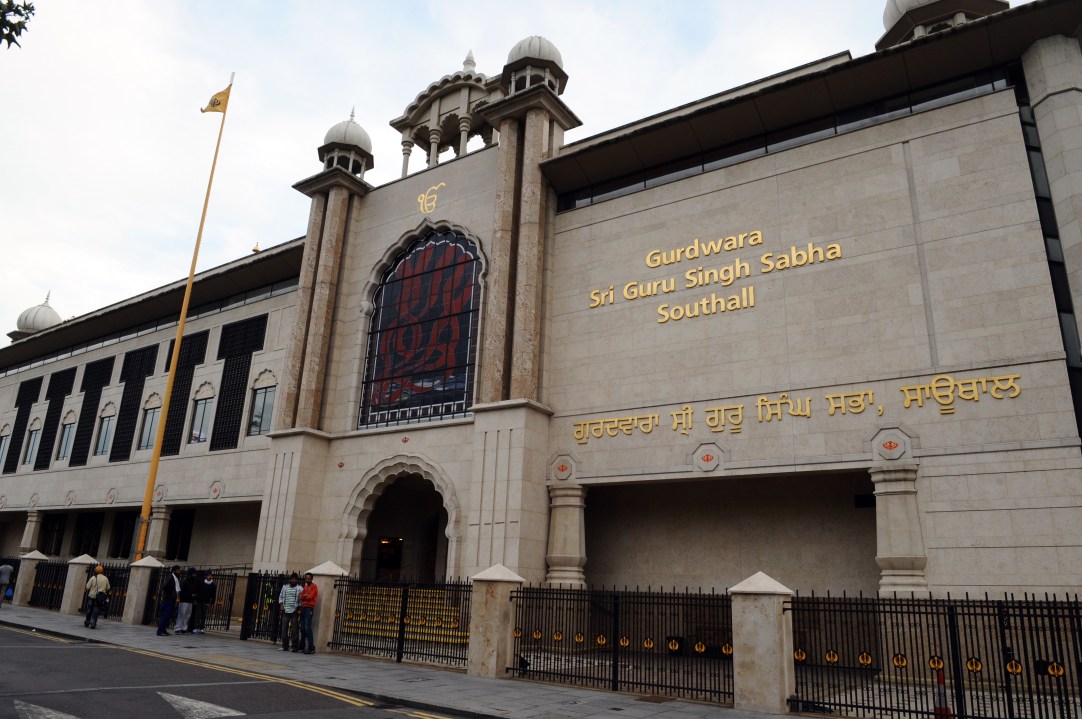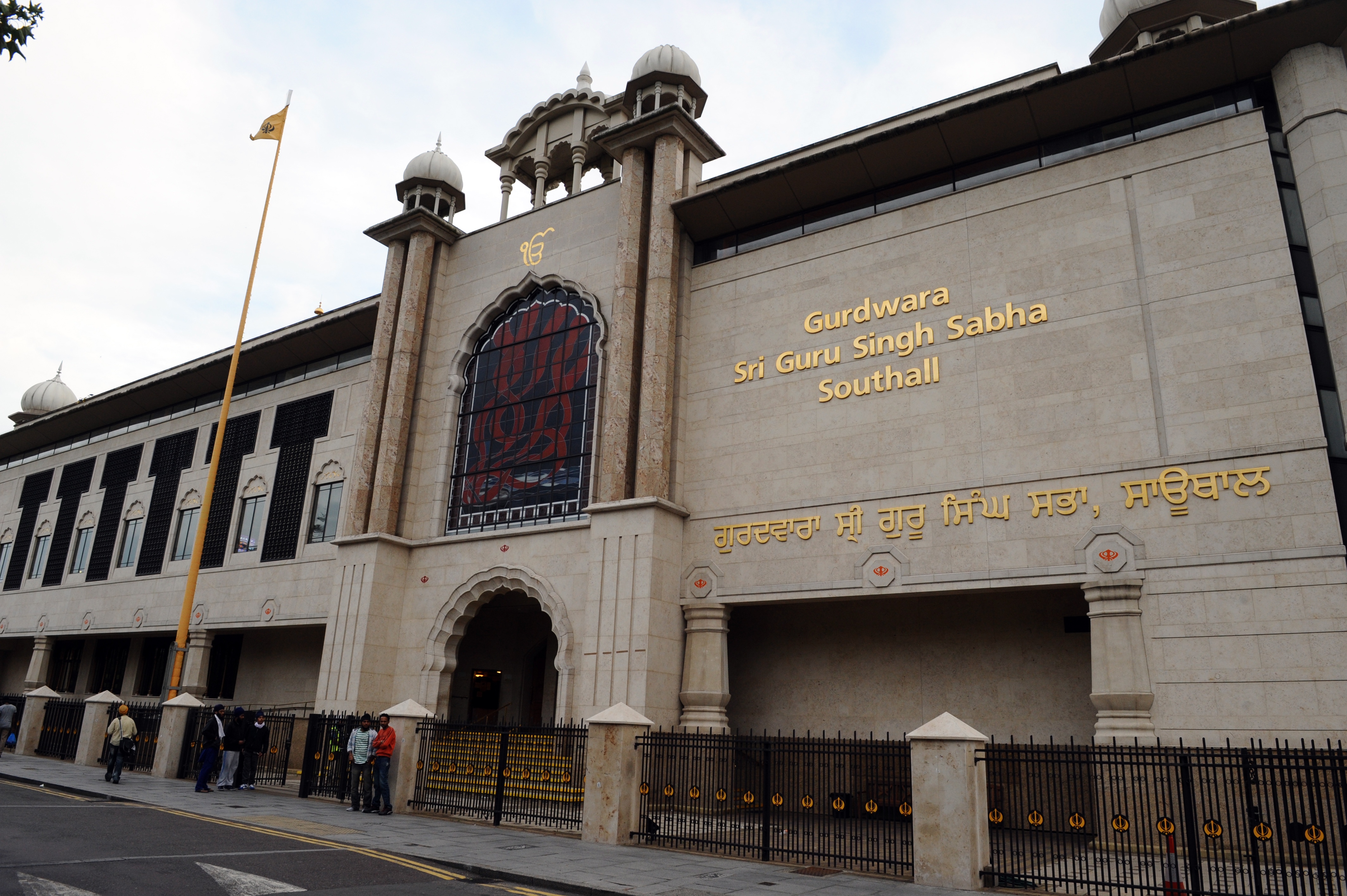A few days ago, Ealing Council put out a statement saying that ‘following consultation’ the local authority had decided to rename a street in Southall. Part of Havelock Road, the Labour-led council explained, would be renamed ‘Guru Nanak Road’. It appears the local authority wanted the renaming to coincide with the 551st anniversary of the birth of Sikhism’s founder Guru Nanak and that the London council was planning to ‘celebrate and honour’ this religious figure.
According to the pressure group Save Our Statues (SOS), just 16 households of the 345 contacted for their views on the proposed renaming had actually engaged with the process. Of those 16 who replied, just seven supported the proposals. I can see why pressure groups like SOS have taken issue with the consultation process, and more broadly lobby to conserve our national heritage. They say ‘inaction is our greatest weakness’ — and inaction certainly seems to be a big part of this particular story — but the proposal in this instance isn’t necessarily a bad thing.
Despite the change, I’m likely to continue to call Havelock Road ‘Havelock Road’. It’s a postcode that remains close to my heart. And while the council’s questionable attempt at a ‘consultation’ leaves much to be desired, there is perhaps some good that can come of the process. The gurdwara or Sikh temple on Havelock Road — Sri Guru Singh Sabha Southall — is one of the largest outside India. It’s a place I regularly visited growing up. As with all gurdwaras here and abroad, there’s a free kitchen that provides vegetarian meals to thousands of people every week (you don’t need to be Sikh) and it’s prepared entirely by volunteers.
While most people will be familiar with Islam’s founder, fewer, I suspect, would know about Guru Nanak, whose life coincided with the European renaissance. His teachings were no less revolutionary than those of his contemporaries, Martin Luther and John Calvin, as he openly challenged the theologies and practices of his time — particularly Hinduism and Islam. He fearlessly pushed back against the bigotry of caste discrimination, the veiling and ill-treatment of women, which included the hideous practice of sati — the self-immolation of widows in the same funeral pyre of their deceased husband. When others cowered in the face of the Isis-like barbarity of the marauding Mughal invader Babur, it was Nanak who heroically chose to openly decry his cruelty. In his very first sermon, he taught ‘nai koi Hindu, Nai Koi Musalman’ — that in God’s eyes there is no Hindu nor Muslim — it’s what we do for our fellow human beings that counts. His message of equality was rooted in vehement opposition to injustice and tyranny.
Many of the children I grew up with in the gurdwara‘s congregation have gone on to have successful professional careers in fields including engineering, medicine, and law and their children now worship at the gurdwara themselves. The road was originally named after Major General Sir Henry Havelock, a British army officer best known for his role in quelling the Sepoy Mutiny of 1857.
Those questioning the council’s decision rightly ask, who is Guru Nanak? If any good is to come of the febrile debate, (akin to Laurence Fox’s comment on Sikh soldiers in relation to the film 1917) — it’s in the opportunity to let people know who Guru Nanak was and what he stood for.
Perhaps those who’ve expressed outrage at Ealing council’s decision, and equally those who’ve blindly agreed to it in their pursuit of wokeness, will take the time to discover more about Guru Nanak’s legacy. If they choose to, this can only be good news for improving levels of religious literacy when it comes to Sikhism, a faith which often falls behind the Abrahamic traditions on the national curriculum, or the production of dedicated religious television documentaries by the state broadcaster (a plea to television producers: don’t use the cringeworthy ‘Sikhs and the City’ title for a documentary ever again).
Although I’m largely ambivalent to the partial change in road name Lord Singh of Wimbledon told me:
Naming the road Guru Nanak road is a positive step in broadening and understanding the different religious and cultures in our country. Before I started broadcasting on the BBC, a crossword in the Telegraph asked for a four-letter word with the clue ‘Punjabi Hindu’ — the answer the next day was revealed to be ‘Sikh’. The more people learn about someone who promoted equality for all human beings and tirelessly fought for women’s rights the better.
Ealing Council’s decision may have divided public opinion but it has created the space for an important conversation about the enlightened teachings of the founder of the fifth largest religion in the world. That can only be a good thing.







Comments